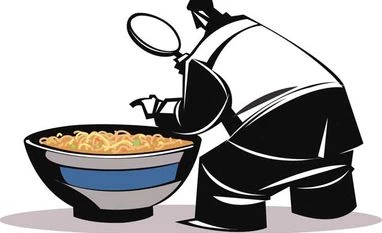Maggi again: Food regulator wants its honour back
FSSAI is not seeking a ban on Maggi this time. But they want adverse remarks made by the Bombay HC expunged
)
National food regulator FSSAI, which came into prominence some five months ago with its ban on Maggi noodles, is back in news. Within days of the 2-minute snack getting relaunched across 100 cities and towns, FSSAI had moved the Supreme Court.
With little clarity on what the appeal was all about, several news reports said the Food Safety & Standards Authority of India had challenged the Bombay High Court order allowing Swiss food major Nestle to relaunch Maggi noodles. Had that been true, it would have turned into a major development—the food regulator, which falls under the Union health ministry, was once again taking on a multinational while the government was out to attract international investors.
With little clarity on what the appeal was all about, several news reports said the Food Safety & Standards Authority of India had challenged the Bombay High Court order allowing Swiss food major Nestle to relaunch Maggi noodles. Had that been true, it would have turned into a major development—the food regulator, which falls under the Union health ministry, was once again taking on a multinational while the government was out to attract international investors.
But a few phone calls later, the script of the story had changed completely on Monday evening. FSSAI had indeed moved the apex court, but not to challenge the Bombay High Court order allowing lifting of the ban. As a government official pointed out, the FSSAI petition in the Supreme Court was linked to the Maggi case, but not linked to its relaunch. In other words, the food regulator was not asking for yet another ban on Maggi noodles.
Why then did FSSAI choose another court outing, after fighting Nestle in the Bombay High Court for some months and then losing to the largest food company of the world? ‘’The food regulator’s appeal in the Supreme Court is out of a sense of honour,’’ pointed out an official tracking the matter. FSSAI wants the SC to quash certain imputations in the Bombay High Court order about the motives behind the ban, the official explained. Technically speaking, the regulator has moved Supreme Court on two counts—to seek expunging of certain adverse remarks made by the Bombay High Court against FSSAI officials on their ability to test food products; and to appeal against the move to de-accredit food testing labs.
Among the Bombay HC remarks that FSSAI may have seen as adverse was ‘’in fact, the entire sequence culminating in imposition of ban on June 5, 2015, by respondent no. 2 (then FSSAI CEO Yudhvir Malik) shows that there is something more than meets the eye….’’ Also, ‘’it appears that respondent no. 2 is also influenced by extraneous considerations….’’ The court also said ''principles of natural justice'' and procedures were not followed before imposing the ban. The respondent no. 2 (Malik) has since been shifted from the FSSAI to Niti Aayog.
As courts routinely make observations, many of which are adverse, FSSAI’s fight to reclaim its honour is getting more than noticed. Perhaps, as much as it was noticed when it had ordered pan-India ban on Maggi noodles in June over the presence of monosodium glutamate and excessive lead content even before half the states of India had submitted the results of sample tests. The controversy only got larger when many of the international food regulators gave a clean chit to the product in their respective countries while FSSAI stuck to its ban.
More From This Section
Don't miss the most important news and views of the day. Get them on our Telegram channel
First Published: Nov 18 2015 | 9:02 AM IST


